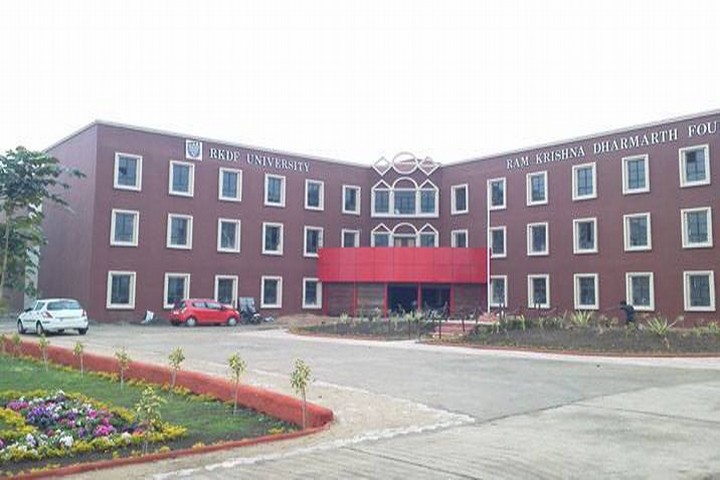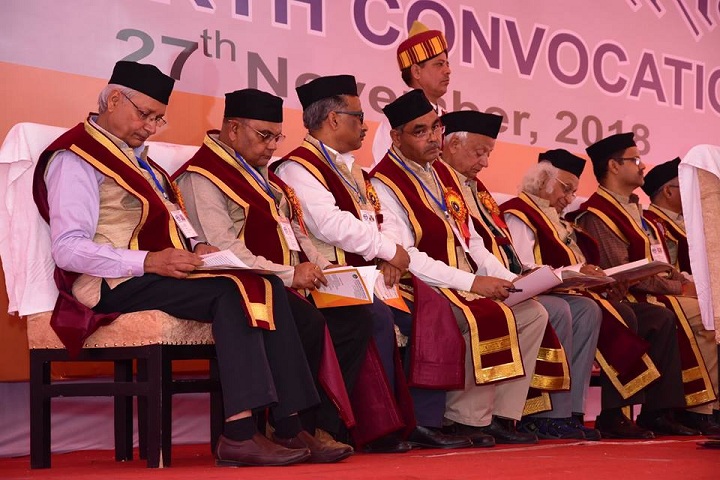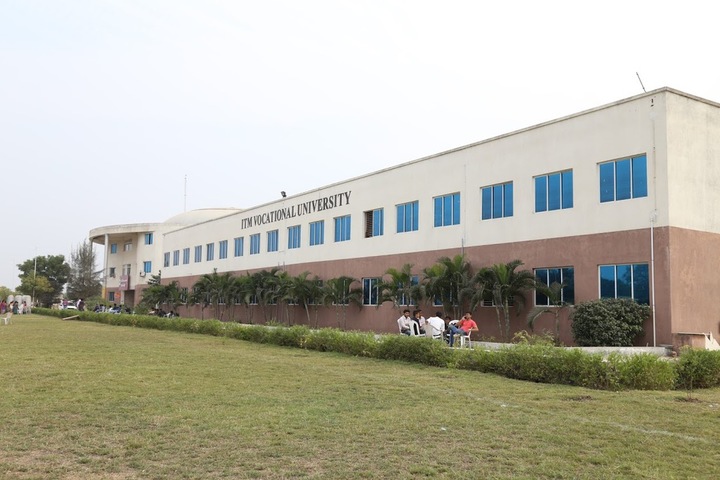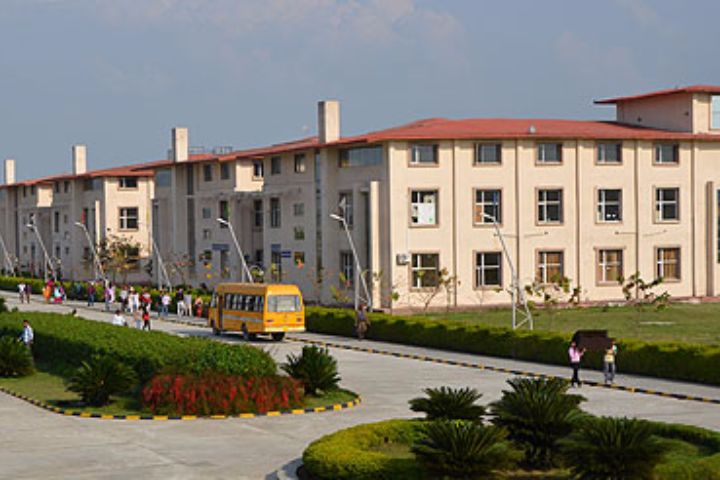
Management Course Details - Fees, Subjects, Syllabus, Duration, Eligibility, Career Scope
What is Management
Management is a specialised field of study that involves overseeing and coordinating resources and operations within an organisation, be it a business, a non-profit entity, or a government body. Management is the science of managing resources, including financial, natural, technological and human resources. After completion of this course, graduates can work as a Business Development Manager, Operations Manager, Operations Manager, Business Application Manager, and Business Analyst.
The topics covered in this course include Microeconomics and Macroeconomics, Principles of Management, Cost Accounting, Financial Accounting, Banking and Insurance, and Operations and Supply Chain Management. The courses are offered at both undergraduate and postgraduate levels, such as BBA/ BCom, BA, BS, MBA, and MPA.
Management Course Details- Highlights
Management courses prepare students with knowledge of business, finance, and organisational operations, developing leadership and strategic skills. Designed for undergraduate and postgraduate learners, they open doors to diverse career opportunities. Below are key highlights, including job roles, course duration, eligibility, top entrance exams, and average fees.
| Particulars | Values |
|---|---|
Branch Name | Management |
Management Degrees | BBA/ BCom, BA, BS, MBA, and MPA. |
Management Course Duration | UG: 3 years PG: 2 years |
Management Eligibility Criteria | UG: 10+2 PG: Bachelor’s Degree |
Management Admission Process | Entrance Exam? Direct Admission |
Management Top Entrance Exams | SET, AIMA UGAT, NPAT, CAT, XAT, MAT, CMAT |
Management Average Course Fees | Rs 6080 to Rs 24.50 Lakhs |
Management Top Colleges | IIM Ahmedabad, IIM Calcutta, IIM Bangalore, MDI Gurgaon, XLRI Jamshedpur, SIBM Pune. |
Management Career Options | Business Development Manager, Operations Manager, Associate Manager, Relationship Manager, Business Analyst. |
Management Average Salary | Rs 9.2 LPA ( for a Business Analyst) |
Management Top Recruiters | Google, Goldman Sachs, Accenture, Infosys, Citibank, Deloitte, Reliance, Mahindra, ICICI Bank, Nestle |
Specialisation or Similar Ones
Management is a specialised branch consisting of various fields such as Marketing Management, Financial Management, Human Resource Management, International Business, and Supply Chain Management. In the table below, we have mentioned some of the key specialisations of the Management branch.
- Business Management
- Operation Management
- Project Management
- Logistics and Supply Chain Management
- Entrepreneurship Management
In the table below, we have listed some related or similar degree programmes to the Management course.
MBA Business Management | MBA Logistics and Supply Chain Management |
BBA Family Business Management | B.Com Cooperative Management |
BBA International Business and Retail Management | B.Com Office Management and Secretarial Practice Hons |
Top Management Colleges in India
In India, various private and government colleges in India offer management courses. Some of the top institutes include IIM Ahmedabad, IIM Bangalore, MDI Gurgaon, and SIBM Pune. Admission to these institutes is based either on the entrance examination or direct admission based on previous year exam scores. In the table below, we have mentioned some of the top B-schools offering various degree programmes.
| Colleges | Fees |
|---|---|
Rs 31.50 Lakhs | |
Rs 24.50 Lakhs | |
Rs 20.50 Lakhs | |
Rs 14 Lakhs | |
Rs 20.65 Lakhs | |
Rs 90,000 | |
Rs 22.02 Lakhs | |
Rs 6080 | |
Rs 2.13 Lakhs | |
Rs 8.45 Lakhs | |
Rs 10.29 Lakhs |
Top Private Management Colleges in India
Management is such a field that almost all the colleges in India offer at least one or two degree programmes in the same. Many private institutes in India offer courses in the field of Management. In the table below, we have mentioned the top private management colleges in India.
| Colleges | Fees |
|---|---|
XLRI Jamshedpur | Rs 14 Lakhs |
MDI Gurgaon | Rs 20.65 Lakhs |
SIBM Pune | Rs 22.02 Lakhs |
Rs 11.84 Lakhs | |
Rs 19.38 Lakhs | |
Rs 10.10 Lakhs |
Top Government Management Colleges in India
Government colleges are known for their quality education and affordable fees. There are many premier government institutes in India providing many degree programmes in the field of management. In the table below, we have mentioned the top B-Schools offering Management courses in India.
| College | Fees |
|---|---|
IIM Ahmedabad | Rs. 31.50 Lakhs |
IIM Bangalore | Rs. 24.50 Lakhs |
IIM Kozhikode | Rs. 20.50 Lakhs |
Rs. 31 Lakhs | |
IIT Kharagpur | Rs. 10.29 Lakhs |
Rs. 7.50 Lakhs |
Eligibility Criteria (UG & PG) of Management
Candidates interested in pursuing an undergraduate or postgraduate degree programme in the field of management must check the eligibility criteria of the desired institute before applying for admission.
Generally, for UG programmes, the candidates need to have completed their 10+2 education in any stream with a minimum aggregate score of 50 per cent to be eligible for admission. For the PG course, the candidates need a Bachelor’s degree in a relevant field with a 50 per cent aggregate score. Mentioned below are the eligibility requirements in detail for UG and PG courses in the domain of Management.
Eligibility Criteria for UG Courses
To pursue a UG programme in the field of Management, the candidates need to have successfully passed their 10+2 education in any score in stream. Below, we have added general eligibility criteria for the UG syllabus:
- Aspirants must have completed their Higher Secondary Exam from any stream with a minimum of 50 per cent aggregate marks
- Aspirants must have studied English as a compulsory subject in class 12
- Students coming from any background may pursue Management studies, but those with Commerce backgrounds will receive some relaxation in the cut-off marks for admission
- Candidates who fulfil the above criteria must sit for the respective entrance exam conducted by the institute.
Top Entrance Exams for UG Courses
Admissions into undergraduate management programmes are offered through degrees such as BBA, B.Com, and BA in Management. Selection may be merit-based or conducted through entrance examinations. Many universities accept national or state-level test scores, while several institutes conduct their own exams. Below are some key entrance exams for UG Management courses.
| Exam Name | Level | Conducting Body | Exam Schedule |
|---|---|---|---|
University Level | Symbiosis International University | - | |
National Level | All India Management Association (AIMA) | ||
University Level | NMIMS (Narsee Monjee Institute of Management Studies) |
Eligibility Criteria for PG Courses
The eligibility criteria may vary from one institution to another. To pursue further studies in Management at the postgraduate level, the general eligibility criteria include:
- Candidates must have acquired a graduate degree from any discipline with a minimum aggregate of 50 per cent from any recognised university or institute. For reserved category students, the minimum cut-off is 45 per cent.
- Students pursuing the final year of their graduate programme are also eligible to apply for an MBA course, provided they produce proof of their completion of the graduation degree when asked by the institute.
Top Entrance Exams for PG Courses
Admissions into postgraduate management programmes such as MBA and PGDM are highly competitive. Selection is usually based on national or university-level entrance exams accepted by top B-schools across India. These tests evaluate aptitude, reasoning, and decision-making skills. Below are some of the key entrance exams for PG Management courses.
| Exam name | Level | Conducting Body | Exam Schedule |
|---|---|---|---|
National Level | Indian Institutes of Management (IIMs) | ||
National Level | All India Management Association (AIMA) | ||
National Level | National Testing Agency (NTA) | ||
National Level | XLRI Jamshedpur |
College Predictors VIEW ALL
Scope of Management in India and Abroad
Management is one of the most popular choices of course of study among students in India, and this is with good reason. Businesses are vast, varied, and constantly growing in different economic sectors, which calls for highly driven, innovative, and talented professionals graduated in a background in management. It is vast, varied, and constantly growing businesses in different economic sectors that call for highly driven, innovative, and talented professionals, preferably with a degree in Management.
These professionals play very important roles in firms and individual companies, at many different hierarchical levels. On top of that, the ever-increasing, intense competition in the business world further adds to the demand for ingenious management executives and professionals in various economic sectors, not only in India but also in any country abroad.
Course Fees Management
| Minimum Fees | Maximum Fees | |||
|---|---|---|---|---|
| Private | Government | Private | Government | |
| UG | ||||
| PG | ||||
| DOCTORAL | ||||
Course Subjects
The syllabus of management courses is designed to build knowledge from the basics to advanced concepts. At the undergraduate level, it covers business fundamentals, economics, communication, and marketing, while the postgraduate level focuses on strategic, analytical, and specialised subjects. Below are the syllabus details for UG and PG management programmes.
UG Syllabus
The undergraduate management syllabus includes the basics of business, economics, accounting, and communication, and later covers areas like human resources, digital marketing, project management, and media production. In the table below, we have added the syllabus from DY Patil Vidyapeeth’s College.
Semester 1 | Semester 2 |
Fundamentals of Management | Organisational Behaviour |
Basics of Marketing | Indian Economy |
Basics of Accounting | Marketing Management |
Introduction to Economics | Business Environment |
Environmental awareness and Disaster Management | Indian Banking System |
Business English | Soft Skills - I |
Universal Human Values | Corporate Communication and Strategy |
Aesthetics and Visual Communication | Advertising and Integrated Marketing Communications |
Creative Writing | - |
Semester 3 | Semester 4 |
Human Resource Management | Management Information System |
Banking Operations | Entrepreneurship Development |
Introduction to Psychology | Introduction to International Business |
Research Methodology | Quantitative Techniques |
Business Law | Financial Management |
Soft Skills - II | Introduction to Digital Marketing |
PR Communication | Sound Studio Recording and Production |
Photography Studio Management | Radio Production |
Semester 5 | Semester 6 |
Introduction to Production Management | Project Management |
Business Ethics and Corporate Governance | Event Management |
Marketing of Financial Services | Fundamentals of E-Commerce |
Elective –I | Introduction to SMEs |
Elective –II | Elective –III |
Project Work | Elective –IV |
Media | Media Project Management |
Film and TV Production Programming | Media Production II |
Film, TV Production Process | New Media Production and Management |
PG Syllabus
The PG syllabus in management focuses on advanced subjects such as economics, marketing, human resources, operations, analytics, strategy, and electives with project work. It is designed to strengthen leadership and decision-making abilities. We have included the MBA (General Management) curriculum from Anna University, Chennai.
Semester 1 | Semester 2 |
Management Concepts and Organisational Behaviour | Financial Management |
Statistical Methods for Decision Making | Operations Management |
Managerial Economics | Human Resource Management |
Accounting for Decision Making | Information Management |
Legal Aspects for Business | Quantitative Techniques for Decision Making |
Communication Skills | Marketing Management |
Entrepreneurship Development | Event Management |
Semester 3 | Semester 4 |
Business Research Methods | Business Analytics |
International Business | Managing Technology Innovation |
Strategic Management | Project Work |
Consumer Behaviour | - |
Strategic Human Resource Management | - |
Indian Banking Financial System | - |
Supply Chain Management | - |
Careers in Management
Management is a professional field that deals with business operations, planning, and leadership across organisations. With increasing demand for managers in India and abroad, career opportunities exist in sectors such as banking, consulting, retail, healthcare, technology, and manufacturing.
Management professionals are responsible for decision-making, resource allocation, and guiding teams to achieve organisational goals. They work in positions like business analysts, operations managers, relationship managers, and business development managers, where efficiency and adaptability are key.
Universities and institutes in India and other countries offer undergraduate and postgraduate management programmes. These courses prepare students for careers in corporate management, entrepreneurship, project coordination, consultancy, and other business-related roles in diverse industries.
Upcoming trends
Management is evolving rapidly with the rise of digital transformation, automation, and data-driven decision-making. Remote work, artificial intelligence, and sustainability practices are reshaping how organisations function. There is also growing demand for skills in people management, change leadership, and technological adaptability in today’s competitive business environment.
- Remote and Hybrid Work Models
- Integration of Artificial Intelligence and Automation
- Data-Driven Decision Making and Business Analytics
- Focus on Employee Wellbeing and Work-Life Balance
- Sustainability and Green Management Practices
- Upskilling and Continuous Learning for Workforce Development
- Agile and Flexible Organisational Structures
- Diversity, Equity, and Inclusion in the Workplace
Job Profiles and Top Recruiters
A career in management is both challenging and rewarding. Professionals must learn and adapt to changes in the industry. The field provides chances for growth, leadership, and working in fast-moving environments. People who enjoy challenges can do well here. Below are some of the common management job roles.
| Job Roles | Description |
|---|---|
Business Development Managers create growth opportunities by building client relationships, exploring new markets, and driving sales. They focus on increasing revenue and expanding the organisation’s presence. | |
Operations Managers oversee daily processes, ensuring efficiency and smooth functioning across departments. They work on improving productivity and resource management. | |
Associate Managers assist senior leaders in planning, coordination, and project execution. They bridge communication between teams and support organisational goals. | |
Relationship Managers maintain strong connections with clients and stakeholders. They handle queries, provide solutions, and ensure customer satisfaction. | |
Business Application Managers manage software systems that support business operations. They ensure applications run effectively and align with organisational needs. | |
Business Analysts study data, processes, and systems to recommend improvements. They help companies make informed and strategic decisions. |
Top Recruiters
- Infosys
- IBM Corp
- Accenture
- HCL Technologies
- Goldman Sachs
- Aditya Birla Group
Average Salary
The salary after any management degree programme depends on various factors such as the job profile, experience and skills of the students, location of the company. In the table below, we have mentioned the average salary of some of the top career options.
| Job Roles | Average Salary |
|---|---|
Business Development Manager | Rs 7.6 LPA |
Operations Manager | Rs 11.1 LPA |
Associate Manager | Rs. 16 LPA |
Relationship Manager | Rs 4.7 LPA |
Business Application Manager | Rs. 26.1 LPA |
Business Analyst | Rs 9.8 LPA |
Source: AmbitionBox
Required Skillset for Management
Candidates wishing to pursue Management degrees require certain skills to perform well academically and in their respective careers. Some of the skills required for Management courses are the Ability to work under pressure, problem-solving, and decision-making skills. In the table below, we have mentioned the required skills for the Management field.
- Decision-making skills
- Managerial Skills
- Problem-Solving
- Management-aptitude
- Good communication skills
- Leadership skills
Course Curriculum for Management
A management course is designed to build knowledge and practical skills in areas such as finance, accounting, marketing, and human resource management. These programmes focus on developing leadership qualities, problem-solving abilities, and analytical thinking required to handle diverse organisational challenges.
In MBA programmes, for example, students usually complete summer training after the first year. This involves working under the guidance of company managers and faculty members to analyse real business problems and suggest practical solutions. Overall, management courses prepare students to effectively handle responsibilities at different levels within a company.
Popular Management Entrance Exams in India
Frequently Asked Questions (FAQs)
Question: What is the average fees of Management course?
Answer :
The average fees of Management course depends on the location and type of the institute. The fees of a private institute is generally higher as compared to a government institute. The average fees ranges from Rs 6080 to Rs 24.50 Lakhs.
Question: What are the top recruiters hiring Management graduates?
Answer :
The top companies hiring Management graduates are Google, Goldman Sachs, TCS, Accenture, Cognizant.
Question: What is the average salary of a Management graduate?
Answer :
The average salary of a Management graduate in India depends on various factors such as the qualification and resume of the candidate, location of the job, and skills.
Question: What are the top colleges offering Management courses in India?
Answer :
There are many colleges in India offering different degrees in the field of Management. The top colleges are IIM Ahemdabad, IIM Bangalore, XLRI Jamshedpur, MDI Gurgaon, and SIBM Pune.
Question: What are the career options in the field of Management?
Answer :
There are many career options in the field of Management such as Business Development Manager, Operations Manager, Associate Manager, and Relationship Manager.
Question: Can I pursue a correspondence course in MBA?
Answer :
Yes, certain universities like Indira Gandhi National Open University (IGNOU), Osmania University and Annamalai University offer MBA degrees in distance learning/correspondence mode.
Question: Is Mathematics in Class 12 mandatory for studying BBA?
Answer :
No, mathematics is not a compulsory subject in Classes 11 and 12 for aspirants of BBA. A majority of universities accept candidates from all streams with the simple requirement that they have acquired the minimum cut off marks.
Question: Does the BBM curriculum include industrial training and exposure?
Answer :
The answer to this varies from college to college; some colleges take industrial training very seriously, while some even make it a part of their curriculum.
Question: Which course is better between BBA and BBM?
Answer :
Apart from the fact that BBA offers certain specializations, the curriculum of both is nearly the same, as are the fundamental concepts. Thereby, both courses are incomparable in quality, you can choose either.
Question: Which are the specializations available in an MBA course?
Answer :
All specialisations in MBA have bright prospects for students, so the choice is entirely made based on what suits your interest best.
Some of the specialisations you can choose from our MBA in Operations, MBA in Sales and Marketing, an MBA in Information Technology, MBA in Finance, and an MBA in HR.



































